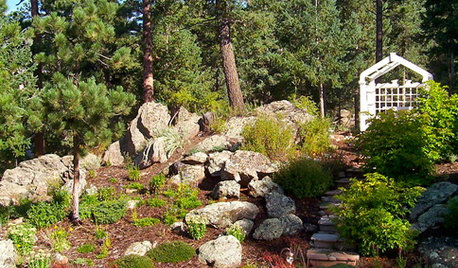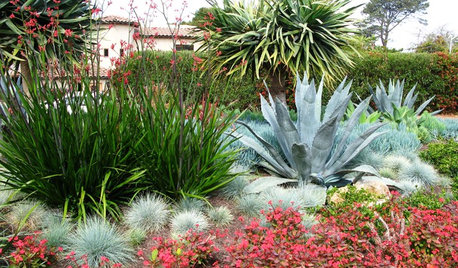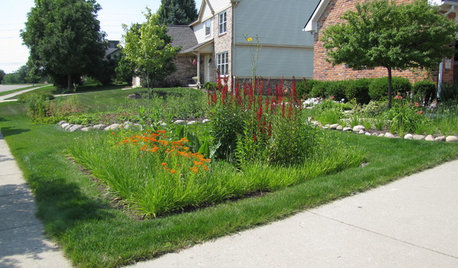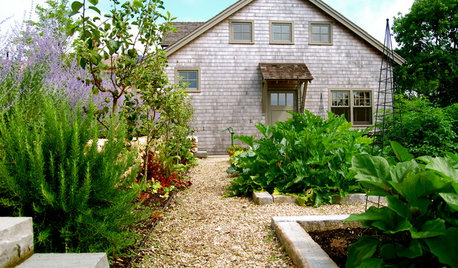cost of soil testing
treelover
16 years ago
Related Stories

GARDENING GUIDESGet the Dirt on Your Garden’s Soil
Understand how your soil supports your plants so you can ensure your garden’s success
Full Story
GARDENING GUIDESHow to Stop Worrying and Start Loving Clay Soil
Clay has many more benefits than you might imagine
Full Story
GARDENING GUIDESHave Acidic Soil in Your Yard? Learn to Love Gardening Anyway
Look to acid-loving plants, like conifers and rhododendrons, to help your low-pH garden thrive
Full Story
GARDENING GUIDESGardening Solutions for Dry, Sandy Soils
Has your desert or beachy site withered your gardening creativity? Try these ideas for a beautiful, easy-care landscape
Full Story
FARM YOUR YARDHow to Get Good Soil for Your Edible Garden
The nutrients in your soil feed the plants that feed you. Here are tips on getting it right — just in time for planting season
Full Story
GARDENING GUIDESGrow a Beautiful Garden in Alkaline Soil
Got alkaline soil? Learn how to manage it and the many beautiful plants that will thrive in this ‘sweet’ soil
Full Story
LANDSCAPE DESIGNHow to Shape a Rain Garden and Create the Right Soil for It
Learn how to grade, lay out and amend the soil in your rain garden to support your plants
Full Story
GARDENING GUIDESGardening Solutions for Heavy Clay Soils
What’s a gardener to do with soil that’s easily compacted and has poor drainage? Find out here
Full Story
GARDENING GUIDESThe Poop Scoop: Enrich Your Soil With Good Old Manure
Get over the ick factor already — this natural super-ingredient for soil has so many benefits, you'll wonder why you ever went chemical
Full Story
GARDENING GUIDESThe Simple Secret to Gardening Success
Learn the kinds of soil and a DIY type test to make sure you’re putting the right plant in the right place
Full Story







dchall_san_antonio
Kimmsr
Related Professionals
East Rancho Dominguez Landscape Architects & Landscape Designers · San Juan Landscape Architects & Landscape Designers · Concord Landscape Contractors · Brandon Landscape Contractors · Euclid Landscape Contractors · Lehigh Acres Landscape Contractors · Madera Landscape Contractors · Mason Landscape Contractors · Palos Verdes Estates Landscape Contractors · Tigard Landscape Contractors · Carlisle Decks, Patios & Outdoor Enclosures · Carmel Decks, Patios & Outdoor Enclosures · Littleton Decks, Patios & Outdoor Enclosures · West Hills Decks, Patios & Outdoor Enclosures · Westford Decks, Patios & Outdoor Enclosureskimpa zone 9b N. Florida.
rhizo_1 (North AL) zone 7
treeloverOriginal Author
rhizo_1 (North AL) zone 7
coolbythecoast
dchall_san_antonio
Kimmsr
patty4150
klsg
arjo_reich
ponderinstuff
arjo_reich
treeloverOriginal Author
Kimmsr
californian
klsg